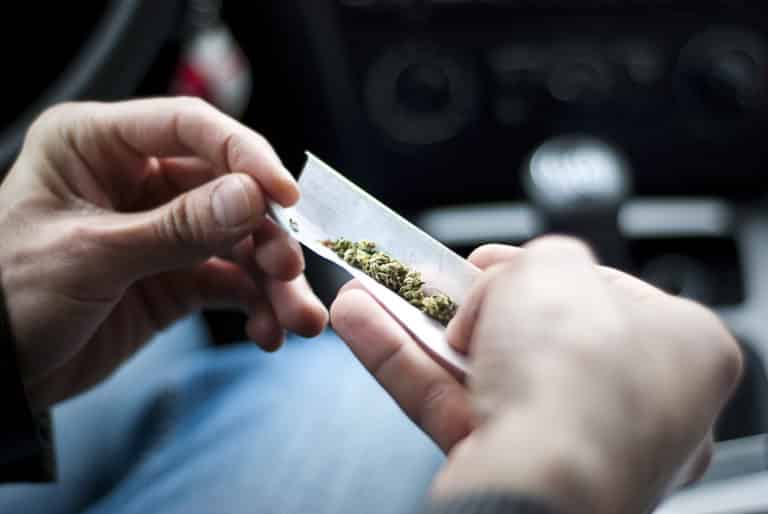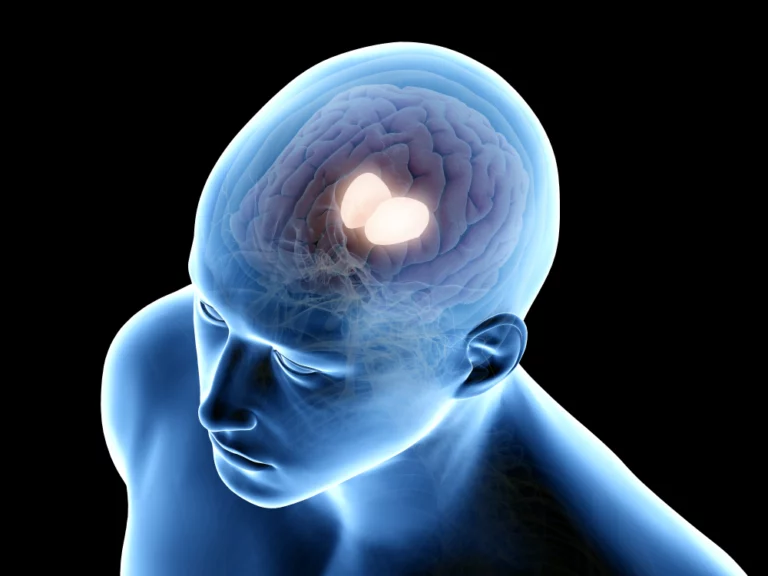Medically Reviewed By Jodi Mabry, Nurse Practitioner (NP)
What are the 5 stages of alcohol addiction? First, it’s important to understand the addiction, itself. Alcohol addiction occurs for several reasons. Individuals can be motivated by a variety of emotions, situations, and traumas. What is certain is that no one chooses to become an alcoholic.
Furthermore, the disease progresses over time so one doesn’t suddenly become an alcoholic. Each person’s journey to addiction will be unique to them. However, even though each case is different, people who suffer from alcohol use disorders tend to go through a similar 5 stages of alcoholism.
There’s no set time period over which these stages occur. So, while some people may take a long time to progress from stage one to five, other people may do so quite quickly. In any case, as soon as you realize you have a problem with alcohol use, you should seek professional help.
If you notice signs of alcohol misuse or addiction in a loved one, you should encourage them to seek help. You don’t have to wait until the situation reaches stage five. Let’s look at what typically happens during each stage.

What is Alcoholism Exactly?
Alcoholism is alcohol abuse at its most severe stage. An alcoholic lacks the ability to quit drinking despite many negative consequences and adverse effects it has had on their life. Alcoholism can be divided into 5 stages, each with their own unique symptoms and warning signs. We will examine these below.
The 5 Stages of Alcoholism
Alcoholism does not develop overnight. This addiction progresses overtime and goes through stages of severity. The following are the 5 stages of alcoholism:
Stage 1: Experimentation
Most people have their first taste of alcohol when they are teenagers, but some may try it at an even younger age. At this point, they may decide whether or not they like the taste or how drinking makes them feel. Some young people drink even if they don’t like the effects.
This is usually because of peer pressure or fear of missing out. Most young adults don’t go on to develop an alcohol use disorder after experimenting. However, some early-stage drinkers find that alcohol helps to reduce their anxiety, relieve pain or erase bad memories. These individuals could go on to develop alcohol dependence.
Stage 2: Increased Tolerance
If a person continues to drink alcohol regularly, they will build up a tolerance. This means the effects are reduced each time they drink. If they are seeking to achieve a particular feeling, they will need to consume more and more alcohol each time. If two drinks were enough to calm their anxiety when they first started drinking alcohol, they may find they now need three or four drinks to feel the same way.
Stage 3: Adverse Effects
With continued misuse of alcohol, the substance may begin to have a negative impact on the user’s life. Excessive drinking can damage relationships with relatives and friends and impact the individual’s work performance. It can also lead to financial problems.
Friends and family are usually the first to notice that something is wrong. At this stage, alcohol also begins to have an adverse effect on the individual’s health. It can cause sleep problems that lead to anxiety or depression.
People in danger of becoming addicted to alcohol may also take unnecessary risks while drinking or drink at times they normally wouldn’t. If your drinking habits have been causing problems in your life, you should reach out for help at this point.
Early intervention makes a successful recovery more likely. It also helps you to avoid the mental and physical health issues that could be coming. You don’t have to go through all 5 stages of alcohol addiction if you already know you have an alcohol-related problem.

Stage 4: Dependence
Over time, the brain and body get used to the presence of alcohol and they become physically dependent. When not drinking, you will experience withdrawal symptoms like nausea, vomiting, sweating, shaking and headaches.
Psychological dependence can also develop. This means you may feel you need a drink in order to function normally. You may think about alcohol all the time or neglect other activities so you can drink.
Stage 5: Addiction
The last of the 5 stages of alcohol addiction is when you lose all control over your consumption. You will drink to reduce the physical symptoms of withdrawal or because you feel anxious when you’re not drinking. You won’t be able to stop drinking even if you want to. You could also start to experience more health problems including heart, liver or kidney disease, paranoia, and dementia.
Signs Your Loved One May Be an Alcoholic
Unfortunately, it can be hard to spot substance abuse before it’s too late and has developed into a full-blown addiction. Alcohol abuse is especially hard to detect since alcohol is both a legal and widely available drug. However, there are common signs to look for if you fear that a loved one’s alcohol consumption has become problematic. They include the following:
- Inability to quit
- Bloodshot eyes
- Weight gain or weight loss
- Legal issues
- Binge drinking
- Financial trouble
- Blackouts
- Drinking in secret
- Isolation
- Frequent hangovers
- Poor performance at work or school
- Neglecting responsibilities or commitments
- Irritability
- Drinking at inappropriate times like in the morning or while driving
- Experiencing withdrawal symptoms when use is stopped
- Intense cravings for alcohol
- Unable to control amount you drink
Dangers of Alcoholism if Left Untreated
When someone is struggling with alcoholism, they may keep drinking regardless of the consequences and may find themselves in hazardous situations, raising the chances of getting into an accident, organ damage, disease, or death.

Alcohol-Involved Accidents
Alcohol can be damaging to a person’s motor skills, reflexes, response time, short-term memory, and capacity to think correctly or logically. Inhibitions are weakened, escalating the risk of engaging in unsafe sexual activities or possibly becoming a victim of crime or violence.
According to the Centers for Disease Control and Prevention (CDC), thirty people die in the US every day in a motor vehicle collision due to a driver being affected by alcohol, which is the equivalent of one person every fifty-one minutes.
Alcohol Overdose
When excess alcohol is consumed within a short time frame, it can be lethal due to the number of toxins that the body is unable to handle. According to the CDC, there are approximately 2,200 fatalities in the United States every year that are linked to alcohol overdose. Furthermore, in addition to the adverse short-term effects of abusing alcohol, there are also extended physical repercussions:
Liver Damage
The human body is incapable of storing alcohol, and the gastrointestinal tract works hard to eradicate ethanol, which is the intoxicating component of alcohol. The liver is one of the organs that helps in filtering out toxins such as ethanol, and excessive consumption of alcohol over a long period of time can result in the formation of fatty tissue, inflammation, and scarring, or cirrhosis, potentially causing alcoholic liver disease.
Brain Damage
The use of alcohol can drastically modify the way that chemical signals are produced and transmitted in the brain. In addition, an addiction to alcohol can change how certain parts of the brain responsible for decision-making, controlling urges, memory, motivation, pleasure, and reward processing are connected.
Consequently, this can profoundly influence one’s moods, conduct, and even temperament. Even though some of the harm done to the brain due to alcohol misuse may be reversible, the possibility of a lasting and disabling mental condition known as Korsakoff’s psychosis remains. This form of memory impairment usually comes before Wernicke encephalopathy.

Alcohol Withdrawal and Detox
When it comes to treating the various impacts of alcoholism, the first step is to go through detoxification, which means removing the alcohol from the body. This process can be mild or extreme depending on the severity of the addiction. Early signs of withdrawal might involve headaches, feeling anxious, feeling sick, being easily irritated, and trembling. Other withdrawal symptoms may include:
- Intense cravings
- Chills
- Muscle aches
- Irritability
- Hypertension
- Tachycardia
- Fever
- Insomnia
- Slurred speech
- Depression
- Fatigue
- Stomach pain
- Anxiety
- Disorientation
- Nausea
Delirium tremens (DTs) is the most extreme manifestation of alcohol withdrawal symptoms, marked by an altered mental state and intense autonomic excitability that could potentially lead to cardiovascular failure.
Although only 5% of individuals experiencing alcohol withdrawal will experience DTs, 5% of these cases may be fatal. Therefore, DTs is a life-threatening condition and signs and symptoms may suddenly become more severe, including:
- Delirium
- Fever
- Tremors
- Excessive sweating
- Severe agitation
- Hallucinations
- Disorientation
- Seizures
Detoxification is frequently regarded as the initial step in the treatment process. It can assist you in getting through the arduous task of abstaining from alcohol, but it does not address the mental activities and conduct that lead to alcohol consumption.
Different treatment plans and settings are available to provide the continual backing required to maintain prolonged sobriety once you have finished detoxification. Treatment plans and programs include inpatient rehabilitation, outpatient rehabilitation, aftercare programs, sober living, and 12-step support groups like Alcoholics Anonymous.

Get Help from Asheville Recovery Center if You’ve Experienced the 5 Stages of Alcohol Addiction
Some people go through all these stages without realizing it. Some don’t notice that they’ve been increasing their consumption. Others are unaware of how dangerous their drinking practices are. Alcoholism can damage your mind and body and make your relationships difficult.
However, you can recover with the right personalized addiction treatment. To escape the stages of addiction, you need to seek professional help. Contact the professionals at Asheville Recovery Center today and schedule a consultation with a recovery specialist.






